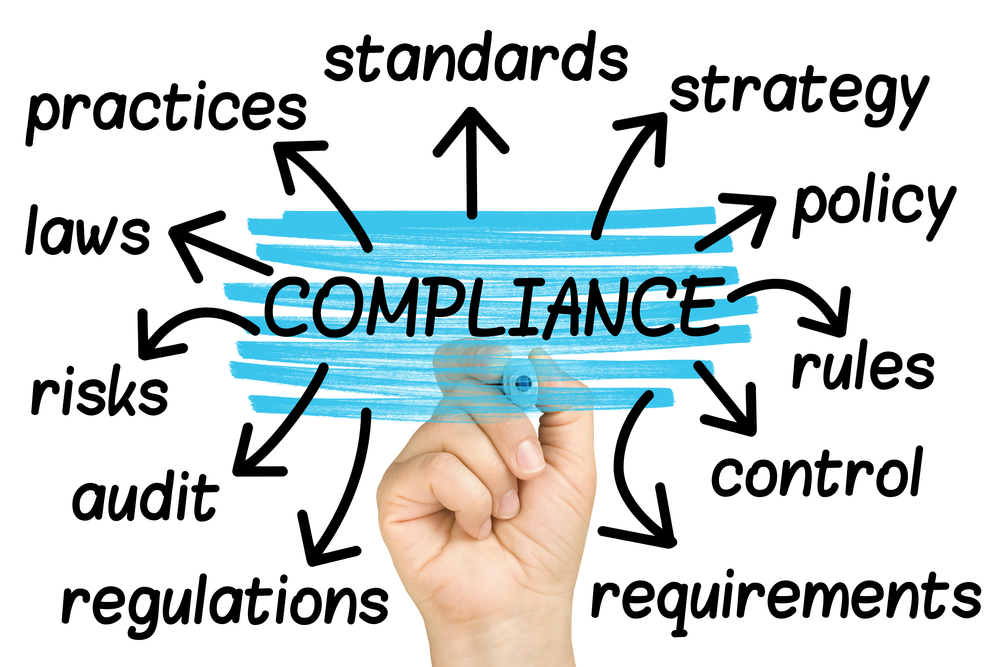You’re looking for guidance on real estate legal compliance and regulatory matters in the Vancouver Island real estate industry. Understanding the intricacies of regulatory compliance is essential to avoid costly penalties and reputation damage. By staying informed about evolving regulations and implementing robust compliance programs, you can mitigate risks and boost your business’s reputation. From zoning laws to anti-money laundering regulations, there’s a lot to navigate. By prioritizing compliance, you’ll not only avoid legal issues but also foster a positive company culture and motivate your employees. You’re on the right track – and there’s more to explore ahead.
Key Takeaways
• Ensure regulatory compliance to mitigate financial and reputation risks, and strengthen business reputation and customer trust.
• Conduct regular compliance risk assessments to identify potential vulnerabilities in the real estate business and implement corrective measures.
• Embed compliance into daily operations and workflows to prevent financial and reputation risks and ensure transparency in financial transactions.
• Implement robust compliance policies and procedures, and foster a culture of transparency and ethical decision-making to respond to changing legal requirements.
• Stay informed about evolving regulations and industry guidelines, and provide comprehensive training for employees to ensure ongoing compliance and navigate regulatory changes.
Understanding Regulatory Compliance
When dealing with real estate on Vancouver Island, understanding regulations is crucial for avoiding pitfalls. The Real Estate Services Act, for example, outlines licensing requirements and ethical standards that you must follow. Regulations can be difficult to follow, remember and abide by all of them all in tandem which is why an experienced Vancouver Island real estate professional is crucial for this situation – let me share a personal story to illustrate why grasping them matters.
A few years back, I helped a client purchase a property without realizing a zoning bylaw prohibited renovating the basement suite they’d planned. By the time we uncovered this roadblock, they’d already made an offer and paid fees. Had I been more diligent about reviewing the applicable bylaws upfront, we could have avoided that money pit.
The takeaway? Staying on top of regulations isn’t just about checking boxes. It’s about preventing headaches, safeguarding your investments, and serving clients ethically. Think of compliance as the foundation that your entire business rests upon.
So how can you build a solid regulatory foundation? First, get familiar with the key acts and bylaws governing your operations. Schedule regular check-ins to review updates, as regulations evolve over time. Consider tapping legal counsel to ensure you interpret nuances correctly.
But compliance is more than just knowing rules. You need programs and processes to uphold them in your day-to-day. Build checklists for each transaction to verify you’ve crossed all the compliance T’s. Provide ethics training to ensure your team internalizes standards. Audit your practices periodically to identify gaps.
The upfront investment pays dividends by mitigating risks down the line. With a culture of compliance ingrained in your business, you’ll protect your reputation, deliver better client outcomes, and steer clear of penalties. On our dynamic island real estate landscape, that ethical resilience is invaluable.
Benefits of Real Estate Legal Compliance
Prioritizing legal compliance for your real estate business does more than just avoid legal headaches. It bolsters your reputation by demonstrating ethical operations, increasing customer trust. Remember when my clients saw I followed all rules and regulations? They felt secure entrusting me with their biggest investment.
Legal compliance reduces risks like penalties, fines, and costly lawsuits from non-compliance. I’ll never forget the nightmare when a brokerage got sued for failing to disclose a property’s history – it nearly bankrupted them. Streamlining processes through compliance boosts productivity too.
On Vancouver Island, businesses known for stringent compliance stand out. Clients view them as trustworthy guides navigating complex real estate laws. That competitive edge translates to more clients and higher market share.
Beyond just checking boxes, true compliance means understanding why regulations exist – to protect all parties involved. Training equips you to make ethical decisions, not just know rules. Professional liability insurance further safeguards your business.
Laws constantly evolve to address new trends and issues. An embedded compliance program allows your operations to nimbly adapt. You’ll be resilient, avoiding disruptions that could cripple unprepared competitors.
Ethical business practices foster a positive culture too. Staff feel pride working for a responsible company. That intrinsic motivation elevates service quality, creating more satisfied customers who remain loyal.
Compliance of Regulations in Real Estate Industry
Real estate regulations safeguard the interests of everyone involved – buyers, sellers, landlords, and tenants. Navigating these rules can seem daunting, but understanding their purpose makes compliance more manageable.
Let me share a personal story. A few years back, I listed a property without fully grasping the fair housing laws. Fortunately, my mentor caught my oversight before any issues arose. She explained that these laws prevent discrimination, ensuring equal opportunities for all. That wake-up call taught me the value of staying compliant.
Licensing and certification aren’t just boxes to check – they demonstrate your commitment to professionalism. Maintaining proper credentials instills trust in clients and protects you legally. I always renew mine well in advance to avoid lapses.
Fair housing and landlord-tenant laws vary by location, but their core principles remain constant: treat everyone fairly and follow the rules. In Victoria, we’ve additional regulations around rental rates and security deposits – it pays to know the specifics.
Environmental regulations sometimes feel like a hassle, but they serve an important purpose: protecting our island’s natural beauty. Simple steps like proper waste disposal and energy-efficient upgrades can make a big difference.
Financial regulations like the Truth in Lending Act ensure transparency for clients securing mortgages or loans. Providing clear, accurate information upfront prevents misunderstandings down the line.
Compliance isn’t about ticking boxes – it’s about operating ethically and building a sustainable business that serves our community. Stay informed, ask questions, and embed these practices into your daily workflows. With the right approach, compliance becomes second nature.
Key Regulatory Compliance Laws
Regulatory compliance forms a crucial foundation in the real estate industry and beyond. A few years ago, a close friend was duped by an unscrupulous real estate agent (who will remain un-named) who failed to disclose crucial information about a property’s history. This ordeal underscored the importance of laws like the Real Estate Development Marketing Act, which mandates transparency in marketing real estate projects.
Compliance extends far beyond our local industry, safeguarding consumers and businesses alike. The Property Transfer Tax Act, for instance, ensures fairness in property transactions across British Columbia. And anti-money laundering regulations, such as those in the Real Estate Services Act, help combat financial crimes by requiring businesses to implement robust measures.
Privacy laws like the GDPR (General Data Protection Regulation) are equally vital, protecting individuals’ personal data from misuse. As a realtor on Vancouver Island, I’ve witnessed firsthand the importance of handling sensitive client information with utmost care.
Beyond real estate, financial transparency is ensured through acts like Sarbanes-Oxley, while HIPAA (Health Insurance Portability and Accountability Act) guards the privacy of healthcare data. Compliance may seem like a bureaucratic burden, but it’s a necessary safeguard that instills trust and protects all parties involved.
My advice? Embrace compliance not as a chore, but as a commitment to ethical practices. Stay informed about relevant laws and regulations, implement robust policies, and prioritize transparency in your dealings. This approach not only mitigates risks but also fosters long-lasting relationships built on trust and integrity – the cornerstones of any successful business, especially in the close-knit Vancouver Island community.
Governance and Risk Management
Real estate revolves around managing risks effectively. As a Vancouver Island agent, you’ve likely encountered situations where rules seemed unclear or the legal landscape shifted unexpectedly. I’ll share a personal experience that underscores the importance of proactive compliance.
A few years back, new disclosure requirements caught me off-guard. An eager young buyer trusted my advice, but I failed to convey all the material facts as diligently as I should have. Needless to say, it led to an uncomfortable situation that could have escalated into a legal dispute. That wake-up call motivated me to overhaul my practices completely.
The first step? Documenting comprehensive, step-by-step processes for every transaction phase – from listing presentations to post-closing follow-ups. This checklist-driven approach ensures you cover all bases methodically. Regular audits help identify gaps or areas for improvement.
The real estate regulatory environment evolves continually. Staying current requires dedication. Audit courses, subscribe to industry publications, and join professional networks. Interactive workshops are invaluable for unpacking complex topics through real-world scenarios.
But it’s not just about ticking boxes. True compliance stems from an ethical, transparent mindset embedded into your brokerage’s DNA. Set the tone through leading by example and nurturing an environment of accountability.
Meticulous record-keeping has saved me countless headaches over the years. Each client communication, property disclosure, contract addendum – document everything meticulously. User-friendly cloud storage makes digitizing paperwork a breeze nowadays.
Mistakes will happen, but a robust governance framework minimizes exposure. Continuous improvement should be the mantra, not just empty rhetoric. Stay vigilant, invest in professional development, and build processes that promote ethical practices. That’s how you cultivate sustainable success in Vancouver Island’s evolving real estate landscape.
Importance of Compliance Policy
Compliance policies are essential for real estate businesses to thrive. They help navigate complex regulations like the Real Estate Services Act, ensuring operations align with laws and industry standards. Such policies outline your commitment to ethical practices, providing clear guidelines and responsibilities.
Early in my career, I worked for a real estate firm that lacked a robust compliance policy. We often found ourselves scrambling to keep up with changing regulations, leading to costly mistakes. After implementing a detailed policy, our processes became streamlined, and we built a trustworthy reputation with clients and regulators.
Building a compliance-centric culture fosters accountability and transparency within your organization. Regular policy reviews ensure alignment with evolving regulations and business objectives, mitigating risks and potential legal issues.
The Real Estate Services Act outlines specific requirements for property disclosures, advertising, and handling client funds. A comprehensive compliance policy would address these areas, providing clear protocols for agents to follow. This ensures consistent practices and minimizes the chances of unintentional violations.
In Vancouver Island’s competitive real estate market, a strong compliance reputation can set your business apart. Clients appreciate working with firms that prioritize ethical practices and protect their interests.
A well-crafted compliance policy is an investment in your real estate business’s future success. It streamlines operations, mitigates risks, builds trust with clients and regulators, and positions your firm as a leader in ethical practices.
Penalties for Non-Compliance
Ignoring compliance rules for real estate can have severe consequences. Hefty fines from regulatory bodies like the Real Estate Council of British Columbia are one major risk. Non-compliance could even lead to criminal charges against brokers or property managers.
Even if you avoid jail, regulatory sanctions like license suspensions can cripple your business temporarily or permanently. And the reputation hit can linger, scaring off clients and top talent.
The regulations might seem annoying, but they’re there for good reasons – protecting consumers, ensuring fair housing, preventing discrimination, you name it. It pays dividends to make compliance a top priority from day one. Do it right, and you’ll avoid costly penalties while building the credibility every successful real estate pro needs.
Implementing Compliance Programs
Establishing a compliance program isn’t just about ticking boxes – it’s about protecting your real estate business and maintaining trust with clients.
A few years back, I’d a client who was unhappy with the disclosure process during their home purchase. Although we followed the letter of the law, there were gray areas that left them feeling misled. It was a wake-up call that compliance isn’t just about rules, but about upholding ethical standards.
So, what does a robust compliance program look like? It starts with clearly defining and documenting the policies and procedures that govern your operations. This includes understanding contract laws, fiduciary duties, and disclosure requirements specific to Vancouver Island real estate transactions.
Continuing education is vital to stay up-to-date with changing regulations and industry best practices. I make it a point to attend seminars and workshops regularly, ensuring my team and I are always well-informed.
To truly safeguard compliance, you need a system for tracking and reporting metrics. This could be something as simple as a shared spreadsheet or a dedicated software platform. The key is to identify areas for improvement and demonstrate your commitment to professional conduct.
Your compliance program should also prioritize employee training and vendor screening. After all, every interaction represents your brand and values. I make sure to thoroughly vet third-party service providers and conduct regular training sessions for my team, reinforcing their compliance responsibilities.
Regular policy reviews and compliance audits are non-negotiable. It’s easy to get complacent, but a yearly or bi-annual audit can uncover blind spots and ensure your program remains effective. I keep meticulous records and encourage my team to speak up if they ever have concerns or suggestions.
Role of Legal Counsel and Advisors
Legal experts play a pivotal role in navigating the intricate world of real estate. As someone deeply immersed in this dynamic industry, you understand the complexities that come with managing properties and complying with ever-changing regulations. That’s where trusted legal counsel shines, guiding you through the maze of compliance policies and ensuring your business stays on the right side of the law.
A few years ago, I was managing a rental property in Victoria, and a tenant dispute arose over security deposit deductions. Without the guidance of a knowledgeable lawyer, I might’ve found myself in hot water, facing potential legal consequences. Thankfully, my legal advisor helped me navigate the situation professionally, ensuring I adhered to the Residential Tenancy Act and avoided costly missteps.
Compliance policies are the backbone of a successful real estate business. Legal experts can help you understand and implement regulations specific to your region, such as the Real Estate Development Marketing Act in British Columbia. They’ll ensure your practices align with industry standards, protecting you from potential violations and hefty fines.
Regulations are constantly evolving, and it’s crucial to stay informed about changes that could impact your business. Legal advisors stay up-to-date on regulatory updates, providing you with timely information and advice on how to adapt your strategies accordingly. For instance, recent amendments to the Strata Property Act in BC have introduced new rules for strata corporations, and a knowledgeable lawyer can guide you through these changes.
Compliance risk assessments are another invaluable service legal professionals offer. They’ll identify potential vulnerabilities in your operations and develop procedures to address them proactively. This can save you from costly legal battles and reputational damage down the line.
Real estate transactions, zoning laws, and property disputes can quickly become convoluted, but with the right legal counsel by your side, you can confidently maneuver these challenges while ensuring ethical and lawful practices.
Managing Compliance Risk Assessments
Conducting regular compliance risk assessments is crucial for identifying potential vulnerabilities in your real estate business and addressing them before they escalate into costly issues. Let me share a personal experience that drove this lesson home.
A few years back, I failed to review new zoning regulations in a municipality where I’d listed a property. As a result, the listing violated setback requirements, leading to delays and frustration for my client. From that point on, I made compliance risk assessments a top priority.
To conduct thorough assessments, review your business’s adherence to relevant laws, like the Land Title Act, zoning codes, and industry standards across all operations. Analyze internal factors like new initiatives and external factors like regulatory changes that could impact compliance. Document the process meticulously to demonstrate your efforts and guide mitigation strategies.
In real estate, due diligence is key to identifying gaps. I make it a habit to review properties in person, cross-check municipal records, and consult experts when needed. Consistently updating your risk assessment approach ensures it aligns with evolving requirements and risks.
Effective compliance reporting allows you to stay ahead of potential issues and maintain a strong reputation. For instance, I provide clients with detailed reports outlining any compliance concerns and proposed solutions. This transparency builds trust and mitigates risks.
Best Practices for Ongoing Compliance
Maintaining a robust compliance program is crucial for navigating the complex real estate landscape on Vancouver Island. Clear policies, procedures, and accountability measures protect your business and keep it adaptable to regulatory changes.
First, staying informed about evolving regulations, industry guidelines, and building codes is key. Regularly reviewing new requirements and updating your processes accordingly can save you from costly mistakes.
Regular internal audits are also essential. By identifying gaps before external audits, you can address issues promptly and demonstrate your commitment to compliance to regulators.
Training is another critical component. Ensuring all employees understand lease agreements, building codes, and regulatory frameworks is vital. Emphasize the ‘why’ behind compliance, not just the ‘what.’
Lastly, robust third-party risk management practices are a must. Thoroughly vetting vendors, contractors, and suppliers can protect your business from potential liabilities.
Frequently Asked Questions
What Is the Meaning of Legal Compliance?
You’re likely wondering, what does ‘legal compliance‘ even signify?
At its core, it’s about adhering to the rules and regulations that steer a particular industry or profession. It’s about conforming to laws, standards, and guidelines that guarantee you’re operating ethically and transparently.
In simple terms, legal compliance is about doing things the proper way, averting legal troubles, and sustaining a good reputation.
What Is Comply With Regulatory Guidelines?
You’re wondering what it means to comply with regulatory guidelines. At its core, it means adhering to rules and standards set by governing bodies, like laws, regulations, and industry codes.
You’re ensuring your actions, practices, and procedures align with these guidelines, avoiding non-compliance risks. It’s about meeting the required standards, being transparent, and maintaining accountability.
What Are Regulatory Guidelines?
Fundamentally, regulatory guidelines are official rules or standards set by government agencies or industry bodies that govern business conduct and operations.
These guidelines outline requirements, procedures, and best practices that organizations must follow to avoid penalties or sanctions.
They cover various areas, such as financial reporting, data privacy, and environmental protection, ensuring organizations operate fairly and safely.
What Is the Legal Compliance Requirement?
You need to understand that legal compliance requirements are essential for your business.
As a real estate professional, you must adhere to laws, regulations, and industry standards applicable to your operations. This means following rules and guidelines that govern your profession, such as those related to fiduciary duties, disclosure, and anti-money laundering measures.
Conclusion
As you navigate the complex world of real estate, remember that legal compliance and regulatory guidance are essential to your success.
By staying ahead of the regulatory curve, you’ll not only avoid legal pitfalls but also build trust with your clients and maintain a reputation for integrity.
By implementing compliance programs, managing risk assessments, and seeking legal counsel, you’ll thrive in a rapidly evolving regulatory environment, providing exceptional service to your clients and upholding the highest standards of professionalism.







